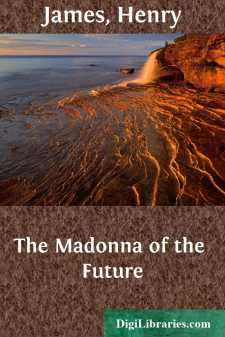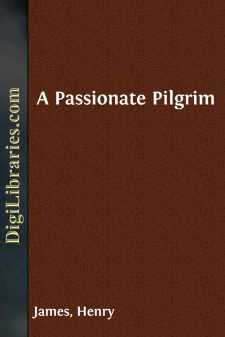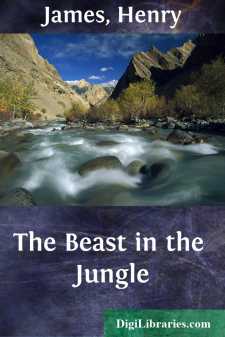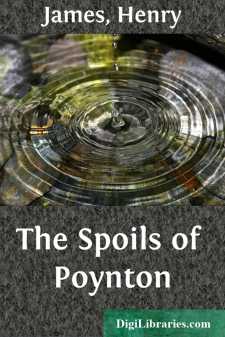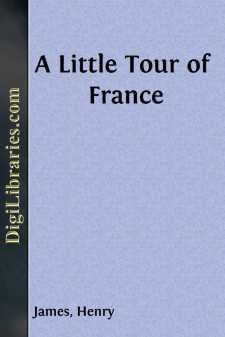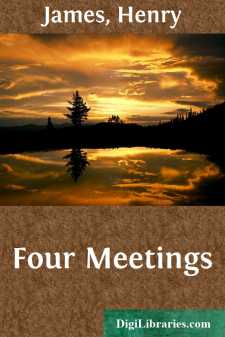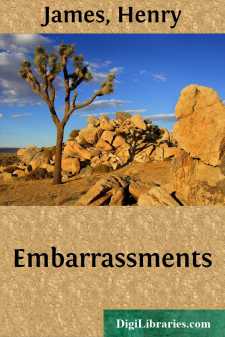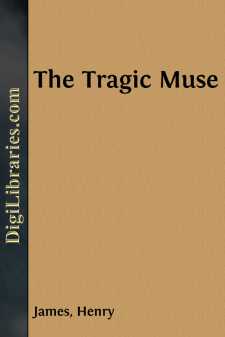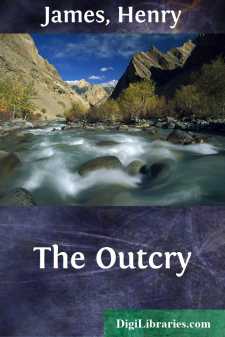Categories
- Antiques & Collectibles 13
- Architecture 36
- Art 48
- Bibles 22
- Biography & Autobiography 813
- Body, Mind & Spirit 141
- Business & Economics 28
- Children's Books 12
- Children's Fiction 9
- Computers 4
- Cooking 94
- Crafts & Hobbies 4
- Drama 346
- Education 46
- Family & Relationships 57
- Fiction 11826
- Games 19
- Gardening 17
- Health & Fitness 34
- History 1377
- House & Home 1
- Humor 147
- Juvenile Fiction 1873
- Juvenile Nonfiction 202
- Language Arts & Disciplines 88
- Law 16
- Literary Collections 686
- Literary Criticism 179
- Mathematics 13
- Medical 41
- Music 40
- Nature 179
- Non-Classifiable 1768
- Performing Arts 7
- Periodicals 1453
- Philosophy 64
- Photography 2
- Poetry 896
- Political Science 203
- Psychology 42
- Reference 154
- Religion 513
- Science 126
- Self-Help 83
- Social Science 81
- Sports & Recreation 34
- Study Aids 3
- Technology & Engineering 59
- Transportation 23
- Travel 463
- True Crime 29
The Madonna of the Future
by: Henry James
Description:
Excerpt
It relates to my youth, and to Italy: two fine things! (H--- began). I had arrived late in the evening at Florence, and while I finished my bottle of wine at supper, had fancied that, tired traveller though I was, I might pay the city a finer compliment than by going vulgarly to bed. A narrow passage wandered darkly away out of the little square before my hotel, and looked as if it bored into the heart of Florence. I followed it, and at the end of ten minutes emerged upon a great piazza, filled only with the mild autumn moonlight. Opposite rose the Palazzo Vecchio, like some huge civic fortress, with the great bell-tower springing from its embattled verge as a mountain-pine from the edge of a cliff. At its base, in its projected shadow, gleamed certain dim sculptures which I wonderingly approached. One of the images, on the left of the palace door, was a magnificent colossus, shining through the dusky air like a sentinel who has taken the alarm. In a moment I recognised him as Michael Angelo’s David. I turned with a certain relief from his sinister strength to a slender figure in bronze, stationed beneath the high light loggia, which opposes the free and elegant span of its arches to the dead masonry of the palace; a figure supremely shapely and graceful; gentle, almost, in spite of his holding out with his light nervous arm the snaky head of the slaughtered Gorgon. His name is Perseus, and you may read his story, not in the Greek mythology, but in the memoirs of Benvenuto Cellini. Glancing from one of these fine fellows to the other, I probably uttered some irrepressible commonplace of praise, for, as if provoked by my voice, a man rose from the steps of the loggia, where he had been sitting in the shadow, and addressed me in good English—a small, slim personage, clad in a sort of black velvet tunic (as it seemed), and with a mass of auburn hair, which gleamed in the moonlight, escaping from a little mediæval birretta. In a tone of the most insinuating deference he asked me for my “impressions.” He seemed picturesque, fantastic, slightly unreal. Hovering there in this consecrated neighbourhood, he might have passed for the genius of æsthetic hospitality—if the genius of æsthetic hospitality were not commonly some shabby little custode, flourishing a calico pocket-handkerchief and openly resentful of the divided franc. This analogy was made none the less complete by the brilliant tirade with which he greeted my embarrassed silence.
“I have known Florence long, sir, but I have never known her so lovely as tonight. It’s as if the ghosts of her past were abroad in the empty streets. The present is sleeping; the past hovers about us like a dream made visible. Fancy the old Florentines strolling up in couples to pass judgment on the last performance of Michael, of Benvenuto! We should come in for a precious lesson if we might overhear what they say. The plainest burgher of them, in his cap and gown, had a taste in the matter! That was the prime of art, sir. The sun stood high in heaven, and his broad and equal blaze made the darkest places bright and the dullest eyes clear. We live in the evening of time! We grope in the gray dusk, carrying each our poor little taper of selfish and painful wisdom, holding it up to the great models and to the dim idea, and seeing nothing but overwhelming greatness and dimness. The days of illumination are gone! But do you know I fancy—I fancy”—and he grew suddenly almost familiar in this visionary fervour—“I fancy the light of that time rests upon us here for an hour! I have never seen the David so grand, the Perseus so fair! Even the inferior productions of John of Bologna and of Baccio Bandinelli seem to realise the artist’s dream. I feel as if the moonlit air were charged with the secrets of the masters, and as if, standing here in religious attention, we might—we might witness a revelation!” Perceiving at this moment, I suppose, my halting comprehension reflected in my puzzled face, this interesting rhapsodist paused and blushed. Then with a melancholy smile, “You think me a moonstruck charlatan, I suppose. It’s not my habit to bang about the piazza and pounce upon innocent tourists. But tonight, I confess, I am under the charm. And then, somehow, I fancied you too were an artist!”
“I am not an artist, I am sorry to say, as you must understand the term. But pray make no apologies. I am also under the charm; your eloquent remarks have only deepened it.”
“If you are not an artist you are worthy to be one!” he rejoined, with an expressive smile. “A young man who arrives at Florence late in the evening, and, instead of going prosaically to bed, or hanging over the traveller’s book at his hotel, walks forth without loss of time to pay his devoirs to the beautiful, is a young man after my own heart!”
The mystery was suddenly solved; my friend was an American! He must have been, to take the picturesque so prodigiously to heart. “None the less so, I trust,” I answered, “if the young man is a sordid New Yorker.”
“New Yorkers have been munificent patrons of art!” he answered, urbanely.
For a moment I was alarmed. Was this midnight reverie mere Yankee enterprise, and was he simply a desperate brother of the brush who had posted himself here to extort an “order” from a sauntering tourist? But I was not called to defend myself. A great brazen note broke suddenly from the far-off summit of the bell-tower above us, and sounded the first stroke of midnight. My companion started, apologised for detaining me, and prepared to retire. But he seemed to offer so lively a promise of further entertainment that I was indisposed to part with him, and suggested that we should stroll homeward together. He cordially assented; so we turned out of the Piazza, passed down before the statued arcade of the Uffizi, and came out upon the Arno. What course we took I hardly remember, but we roamed slowly about for an hour, my companion delivering by snatches a sort of moon-touched æsthetic lecture. I listened in puzzled fascination, and wondered who the deuce he was. He confessed with a melancholy but all-respectful head-shake to his American origin....


